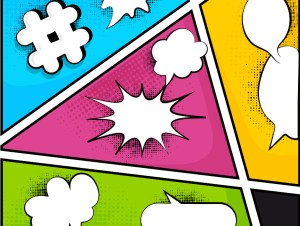Guardians’ Guide to Teen Substance Use Prevention
This month, let’s take a few minutes to review Substance Abuse and Prevention together:
 Substance Abuse Points to Consider
Substance Abuse Points to Consider
- Drug addiction is a chronic disease characterized by compulsive use despite the negative and harmful consequences.
- Brain changes occur over time with drug use. The challenge brought to an addicted person’s self-control interferes with their ability to resist the urge to take drugs. This is also why relapse occurs.
- Drugs affect the brain’s reward system by flooding it with the chemical dopamine. This over-stimulation of the brain’s reward system causes the profoundly pleasurable “high” that leads people to take a drug again and again.
- No single factor can predict whether a person will become addicted to drugs. A sequence of genetic, environmental, and developmental factors weight the risk for addiction. The more risk components a person has, the greater the chance that taking drugs will lead to addiction.
- Drug addiction is treatable and can be successfully handled with proper substance abuse treatment.
Prevention-Related Discussion for Adolescents
Drug abuse and addiction is preventable. Teachers, parents, and health care providers have major roles in educating young people and prevention.
- Setting expectations is an essential element of preventing drug abuse. As a parent, it’s important to speak to your children regularly and let them know what you do and do not find to be tolerable behavior.
- Discussing the types of drugs and the associated dangers will also take the mystery out of use and can help prevent your teen from trying a drug he or she knows little about.
- Even the most well-intentioned teen can fall prey to peer pressure, which can feel overwhelming. To monitor your teen, you need to know where they are, who they are with, and what they are doing.
Even when you are not physically present, you can still track your teen’s behaviors. It is possible to monitor through:
- Phone calls
- Random trips home earlier than expected
- Having neighbors watch for visitors during hours when you are away
- Monitoring levels of prescription drugs in your home
- Looking for changes in your child’s habits or friend groups
Also make clear the common consequences of drug use and addiction, such as:
- Harsh legal penalties for possession or use
- Physical health problems
- Mental health issues and even brain damage
- Strained relationships
- Increased risk of blood borne diseases, such as HIV and hepatitis
- Financial problems
- Academic problems
Rather than only enforcing punishment for undesirable behaviors, reward your teen for willingness to engage in socially appropriate behaviors like doing well in school, maintaining good relationships, and respecting household rules. It will be much easier to prevent drug abuse than to stop it.
It is important to talk openly and honestly with your teens about drug use. They need to be able to talk to you about the pressures they are experiencing and how they should handle them.
Role-playing is a great way to connect with your teens and give them the tools they need to be able to resist peer pressure and drug use. If you have a history of drug abuse, letting your children know about that may help them see the lasting effects that drugs can have in life.
Your teens will benefit from knowing that they will not be in trouble for being honest with you. Trust and communication are essential to drug use prevention.
Written by Jeremy Sublett, LPC-MHSP
